Roots
Roots anchor trees into the soil, but also enable the uptake of water and nutrients. Roots are associated with microbial symbionts like ectomycorrhiza which enhance water and nutrient uptake. But also pathogenic soil microbes can infect roots. How deep and wide roots grow into the soil depends on species and soil characteristics.
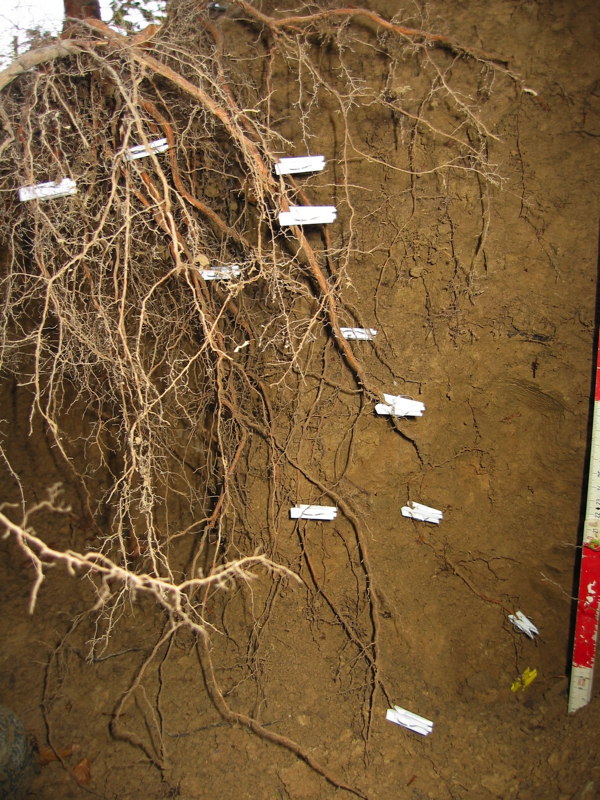
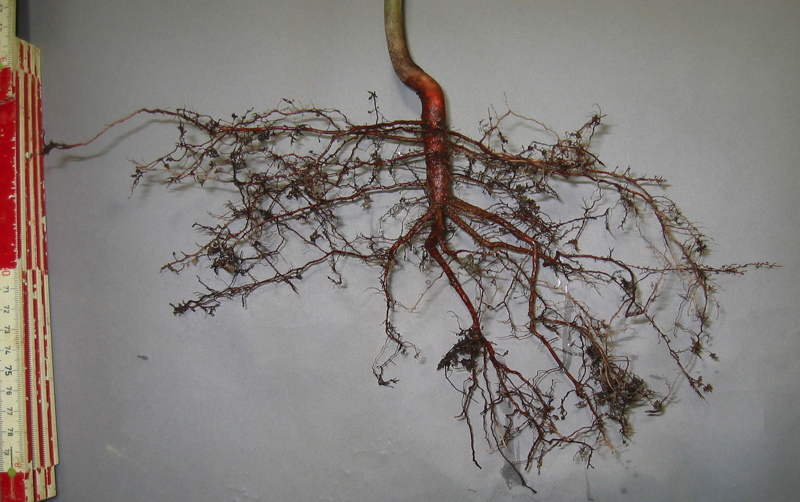
Fine roots of an adult beech (left) and of a sapling (right).
Soil acidification and increased nitrogen deposition impair root growth. Thus, rooting and stability of trees is strongly reduced in acid soils. Fine roots, which are mainly involved in water and nutrient uptake, are even more sensitive to changes in soil chemistry. In beech plots with high soil acidity and nitrogen deposition we found fine root length to be significantly reduced. This has consequences for the forest ecosystem: strongly reduced colonization by microbial symbionts, reduced water and nutrient uptake, as well as a smaller nutrient input to the soil due to lower root turnover rates.
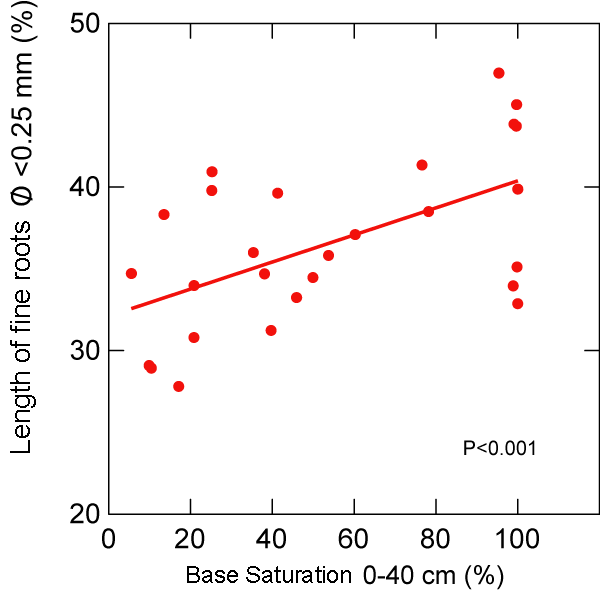
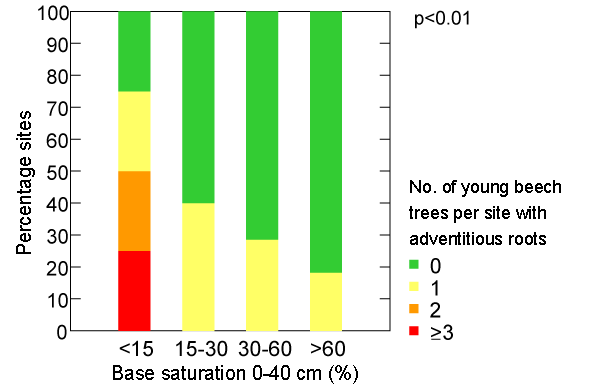
Beech saplings from different forest plots showed a significant reduction of the length of fine roots
with a diameter smaller than 0.25mm in acid soils (left), and the amount of adventitious roots
was increased (right).
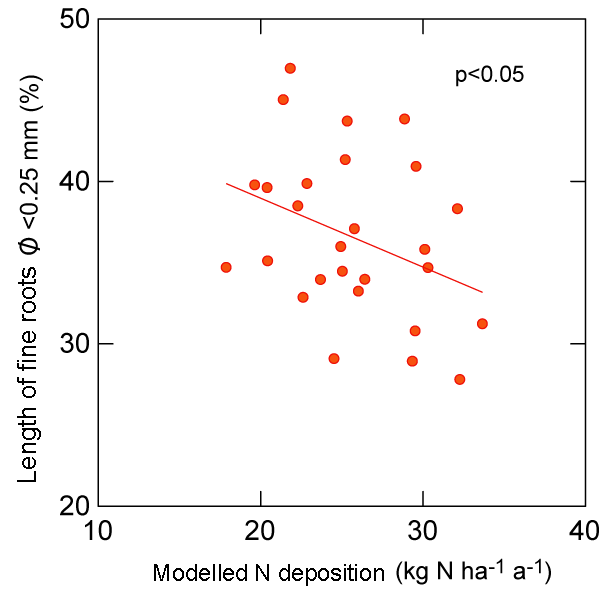
Also the relationship between nitrogen deposition
and fine root length is significantly negative.

